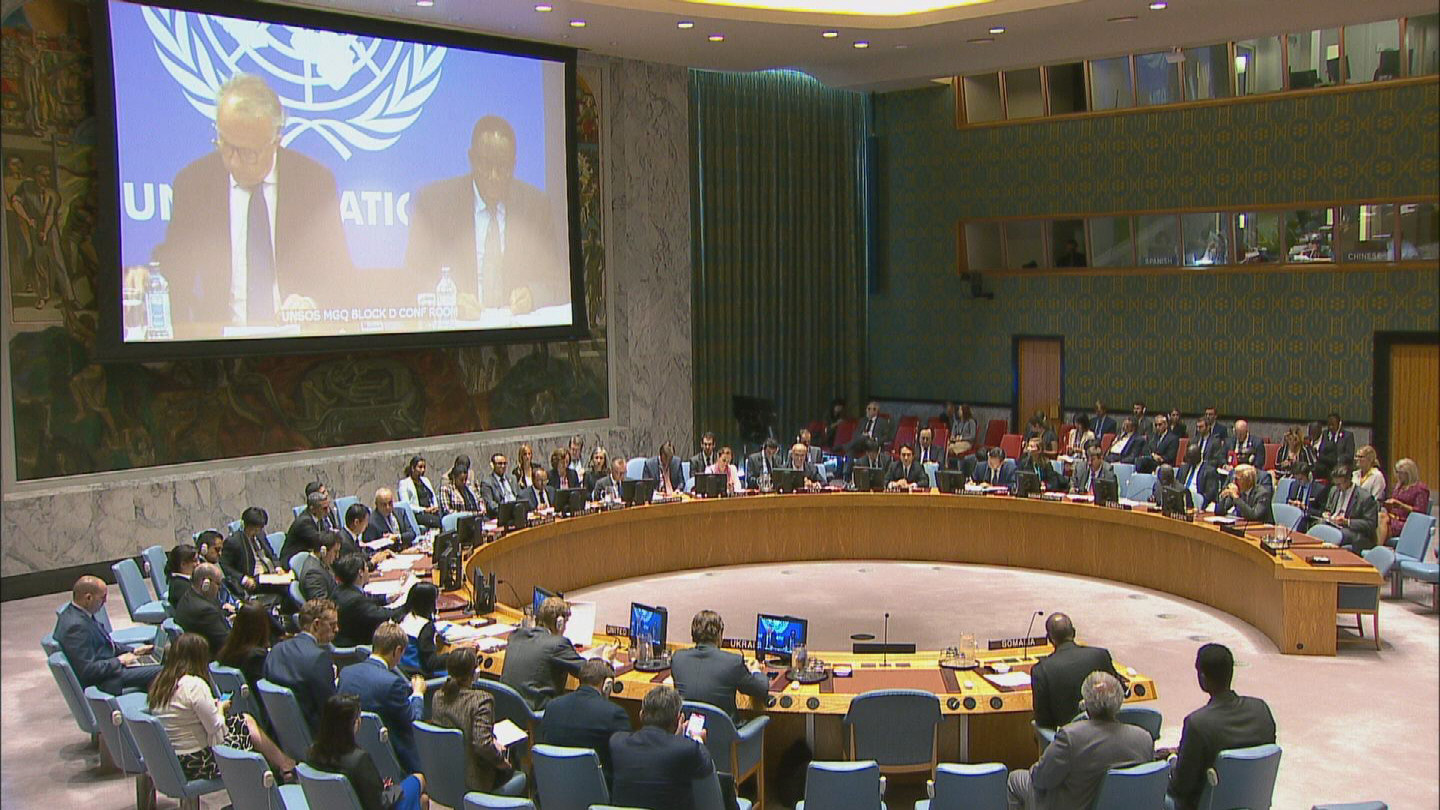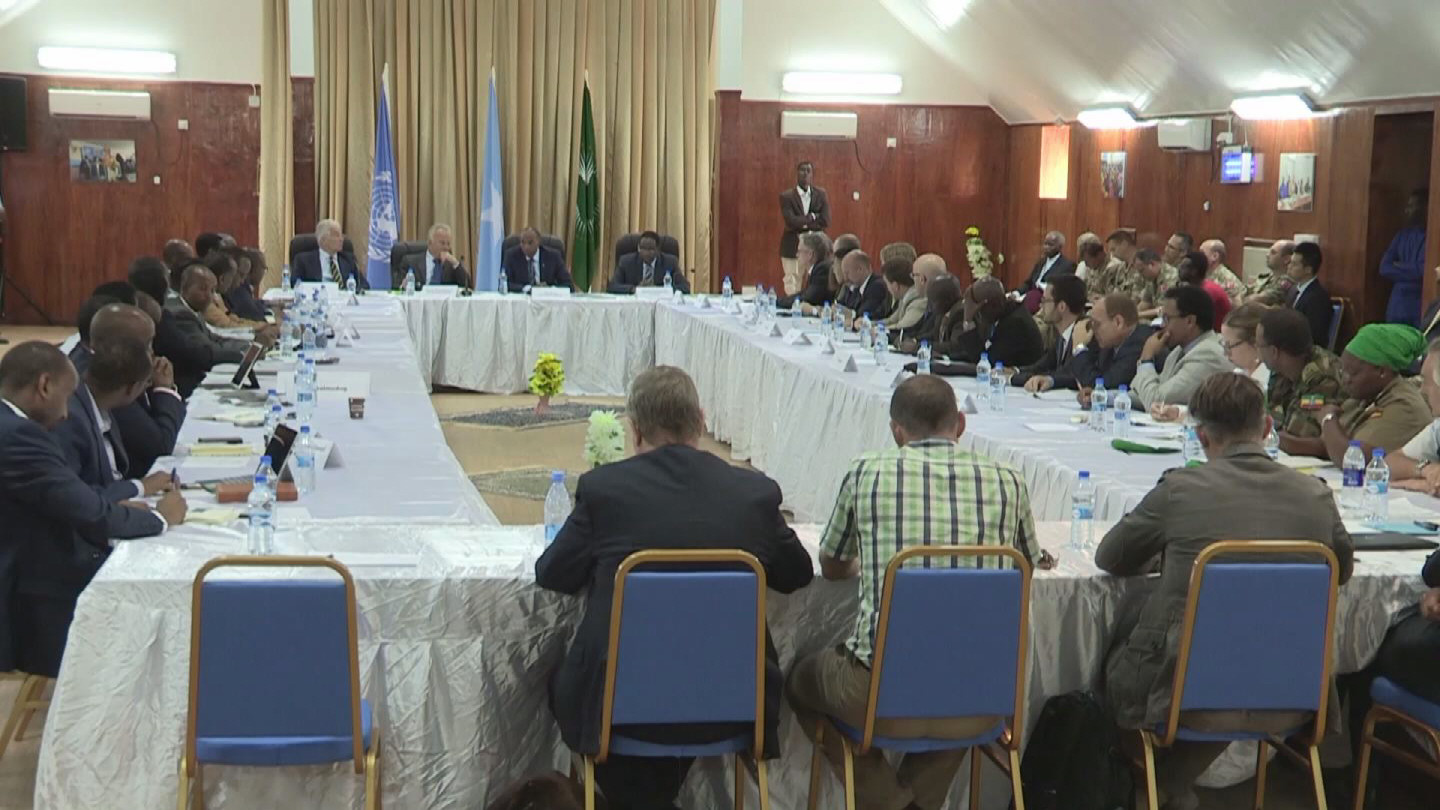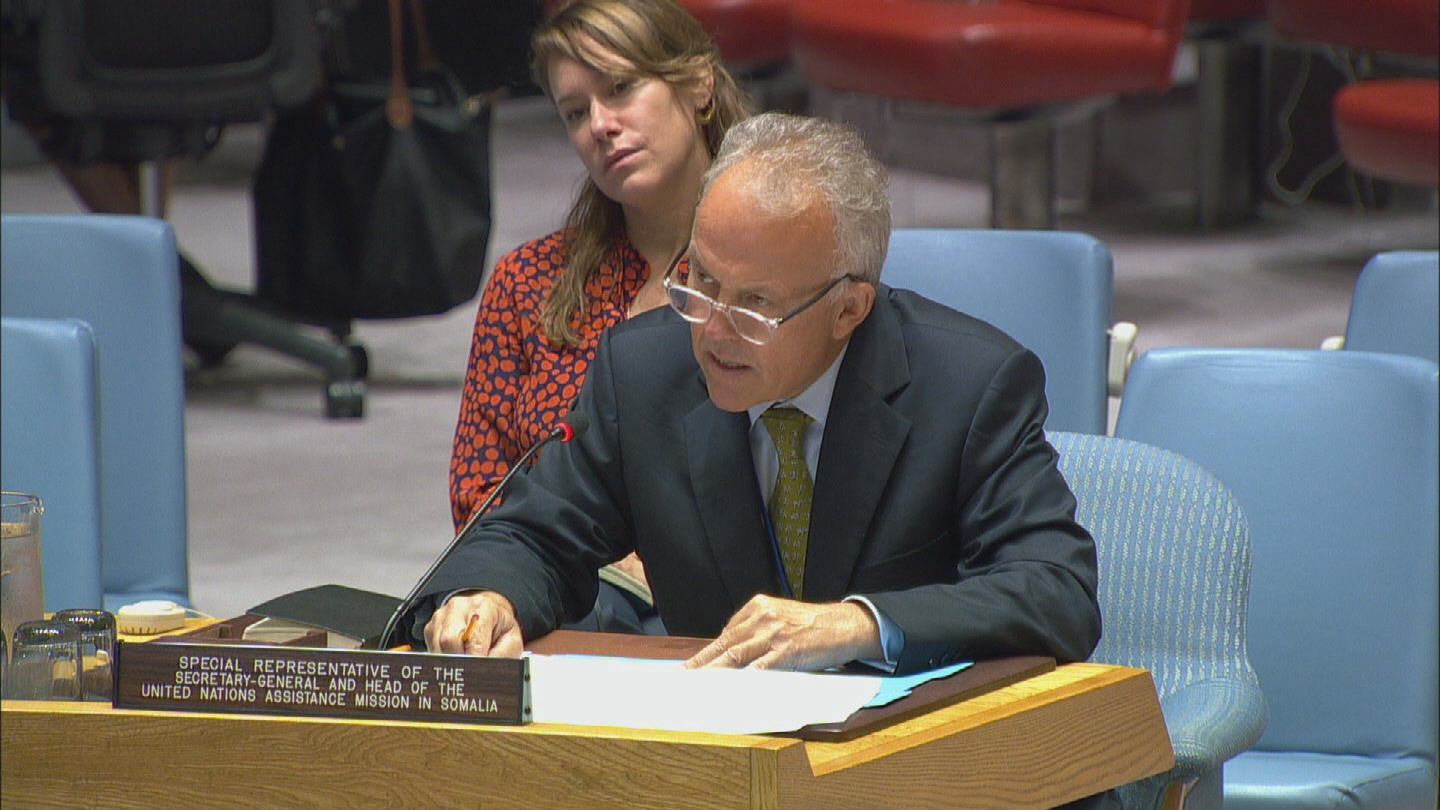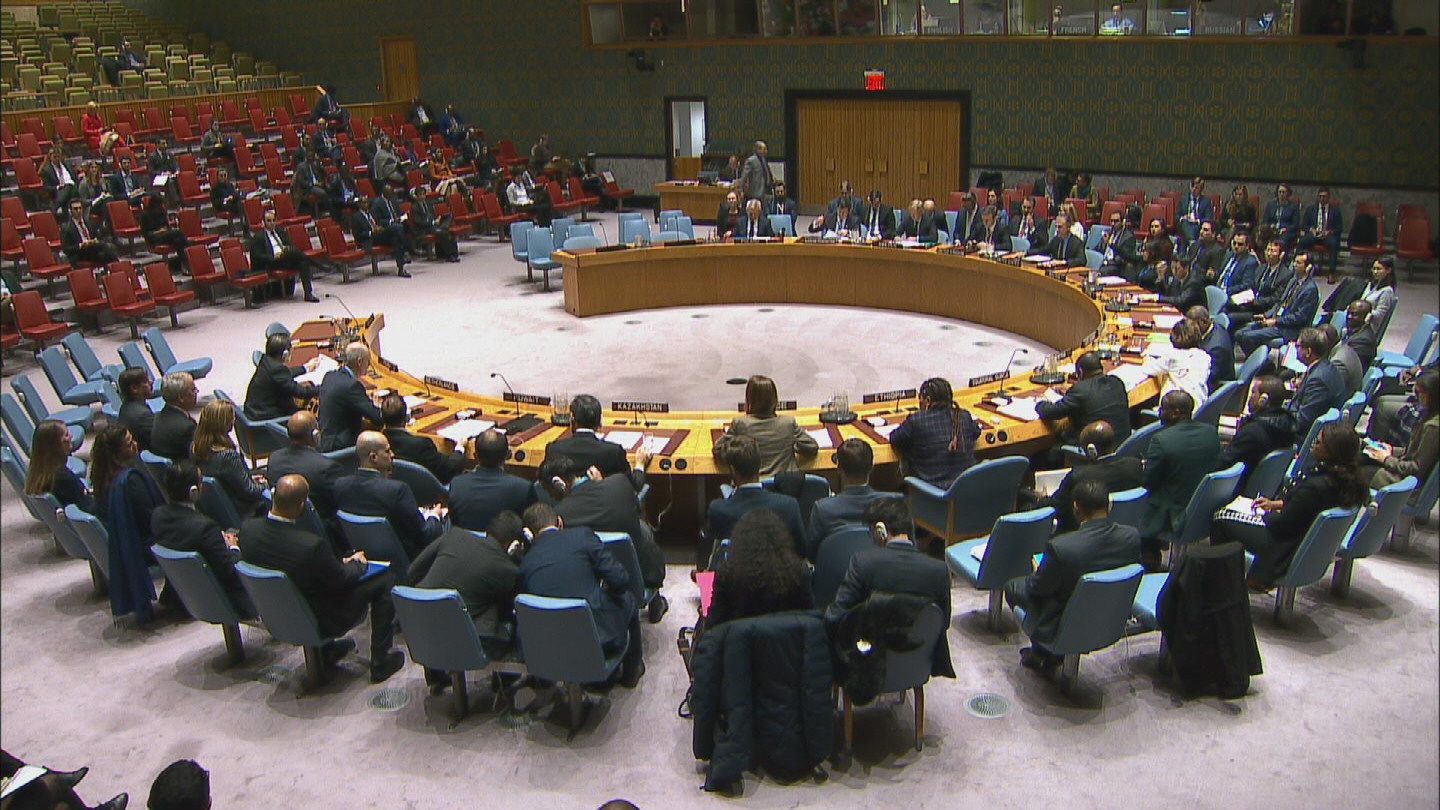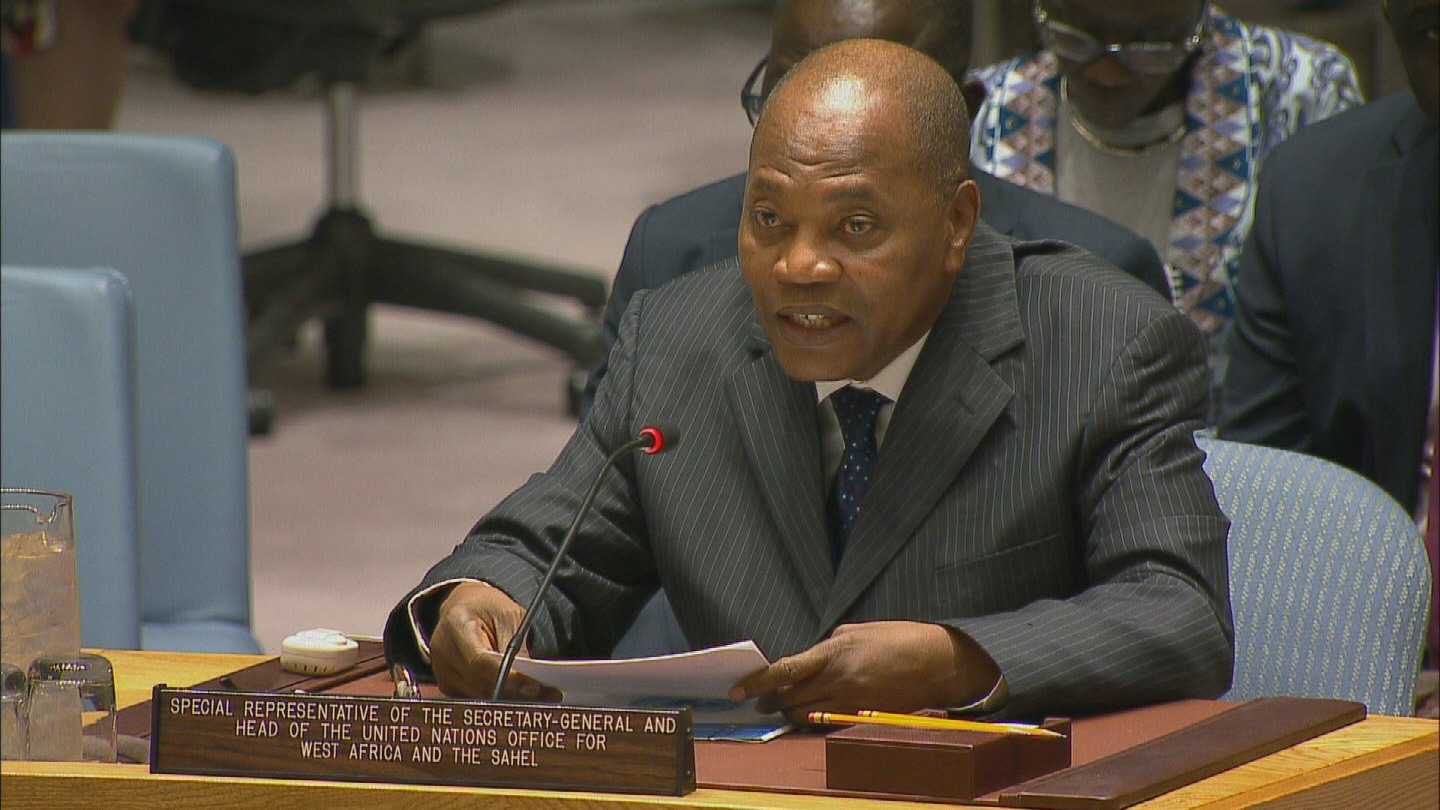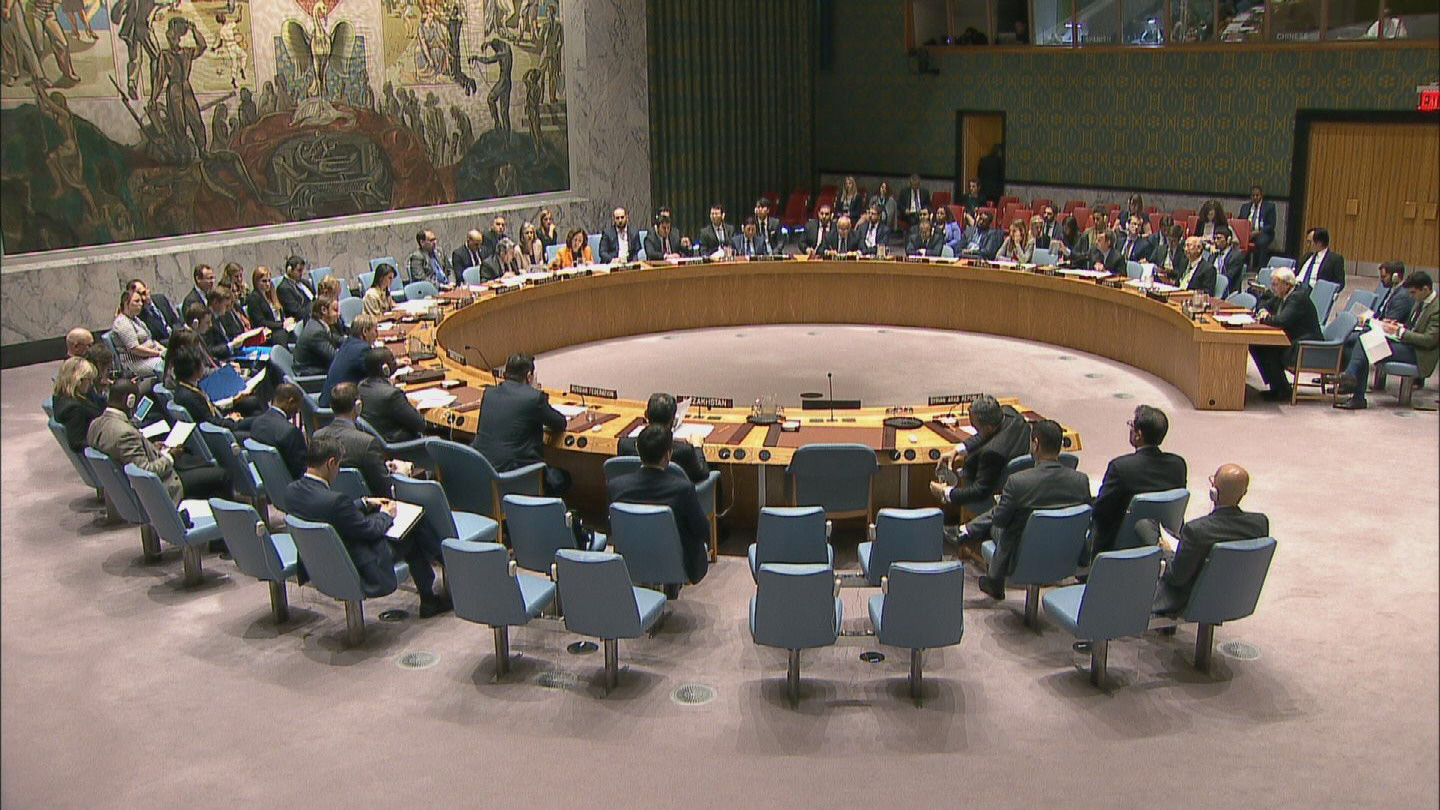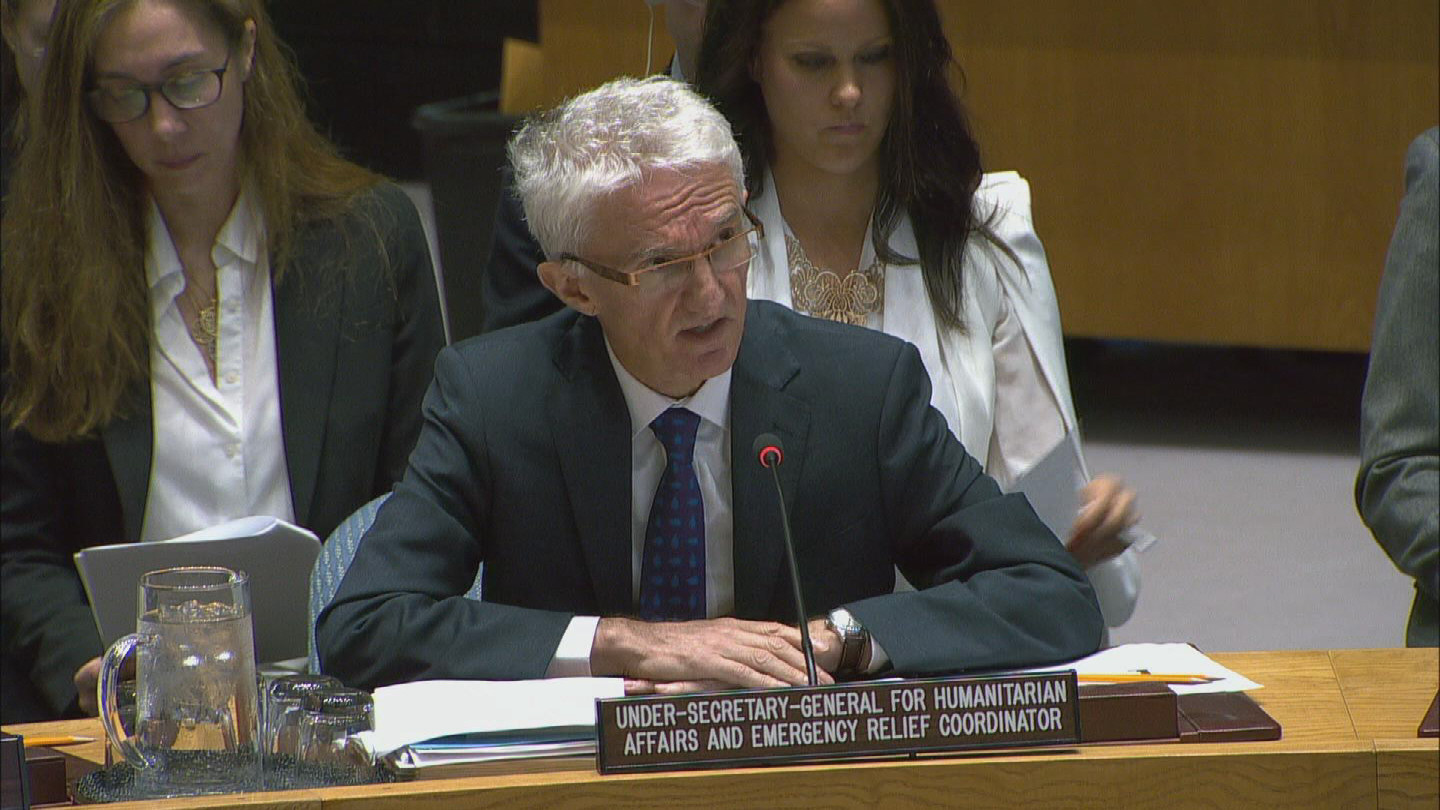UN / SOMALIA
Download
There is no media available to download.
Share
STORY: UN / SOMALIA
TRT: 02:49
SOURCE: UNIFEED
RESTRICTIONS: NONE
LANGUAGE: ENGLISH / NATS
DATELINE: 24 JANUARY 2018, NEW YORK CITY
FILE - NEW YORK CITY
1. Med shot, UN Flag at Headquarters
24 JANUARY 2018, NEW YORK CITY
2. Wide shot, Security Council
3. SOUNDBITE (English) Michael Keating, Special Representative of the Secretary-General for Somalia, United Nations:
“Somalia is making definite progress, though the risks remain real. It is fortunate to have a government that is committed to reform, to resolving conflicts and to meeting the formidable social, economic and security needs of the population. Continued progress is dependent not only on the strong political will and skill of the Federal Government, but also cooperation and partnership with Federal Member States, parliament, clan elders, business and international partners. When all of these constituencies cooperate, huge strides can be made. I strongly encourage Somali stakeholders to unite to tackle these priorities and to make 2018 a year of implementation.”
4. Med shot, delegates
5. SOUNDBITE (English) Michael Keating, Special Representative of the Secretary-General for Somalia, United Nations:
“There is a serious danger that long-standing disputes between Puntland and Somaliland, and in particular an armed stand-off in Sool, could erupt into violence in the coming days, with potentially grave consequences. This comes very soon after delayed presidential elections and the orderly and peaceful transfer of power that took place in Somaliland late last year.”
6. Med shot, Somali ambassador
7. SOUNDBITE (English) Michael Keating, Special Representative of the Secretary-General for Somalia, United Nations:
“Defeating Al Shabaab requires both a military and political strategy, the use of both sticks and carrots, as well as sustained efforts to address deficits that lend extremists a degree of credibility. These include corruption, lack of educational and job opportunities for young people, weak national justice and corrections capacity, and grievances arising from unresolved disputes.”
8. Med shot, ambassadors on Cote D’Ivoire and Equatorial Guinea
9. SOUNDBITE (English) Michael Keating, Special Representative of the Secretary-General for Somalia, United Nations:
“The scale of the challenges facing the country are daunting. Chronic poverty and persistent humanitarian needs cast an ominous shadow over Somalia. The risk of famine still looms after four consecutive failed rainy seasons. The 2018 Humanitarian Response Plan calls for $1.6 billion.”
10. Wide shot, Security Council
11. SOUNDBITE (English) Abukar Dahir Osman, Permanent Representative of Somalia to the United Nations:
“The recently conducted Operational Readiness Assessment (ORA) revealed that SNA, the Somali National Army, lacks properly trained manpower, barracks, weapons and ammunition as well as logistical support. The Somali National Army needs to be capacitated in all fields, training, equipment, mobility, and weapons, to be able to inherit, hold, and preserve the gains achieved. Without support from above mentioned constrains, transition from AMISOM to the Somali security Forces will be a mirage. Transition from AMISOM to SNA should be condition-based.”
12. Wide shot, Security Council
The UN chief in Somalia Michael Keating told the Security Council today (24 Jan) that the country was making “definite progress, though the risks remain real.”
Keating expressed his encouragement by the stabilization of the relationship between the Federal Government and Federal Member States after a period of tension late last year. He said Somalia was “fortunate to have a government that is committed to reform, to resolving conflicts and to meeting the formidable social, economic and security needs of the population.” Keating added that continued progress was not only dependent on the strong political will and skill of the Federal Government, “but also cooperation and partnership with Federal Member States, parliament, clan elders, business and international partners; when all of these constituencies cooperate, huge strides can be made.” He strongly encouraged Somali stakeholders to unite to tackle these priorities and to “make 2018 a year of implementation.”
Keating however said that Somali politics remain turbulent. The Special Representative said corruption was undermining reform efforts and limiting the confidence and trust of Somalis in their leaders and institutions. He added that the effects of corruption can be seen in all areas of public life from business to politics, justice to security.
Regarding conflict resolution and reconciliation, Keating said the federal government plans to launch a national strategy in the coming months, recognising the multifaceted nature of the many disputes and grievances in the country. He said there was a “serious danger that long-standing disputes between Puntland and Somaliland, and in particular an armed stand-off in Sool, could erupt into violence in the coming days, with potentially grave consequences.” He urged the leaders of Puntland and Somaliland to declare a cessation of hostilities, withdraw their forces, restore the status quo ante, and open channels of communication.
The UN official noted that Al Shabaab remains a potent threat, despite, or perhaps precisely because, it is on the back foot as a result of financial pressures, counter terrorism operations and air strikes. He said defeating the group would require using “both sticks and carrots, as well as sustained efforts to address deficits that lend extremists a degree of credibility; these include corruption, lack of educational and job opportunities for young people, weak national justice and corrections capacity, and grievances arising from unresolved disputes.”
Keating stressed that the scale of the humanitarian challenges facing Somalia are “daunting.” He said, “Chronic poverty and persistent humanitarian needs cast an ominous shadow over Somalia; The risk of famine still looms after four consecutive failed rainy seasons; [and] the 2018 Humanitarian Response Plan calls for $1.6 billion.”
Somali ambassador Abukar Dahir Osman said his Government continues to make progress on security and financial reform. He added that there has been close collaboration between the Federal Government and Federal Member States on economic recovery, dealing with anti-corruption issues and reform, and now discussions would also include security reform.
Osman stressed that the existing arms embargo framework on Somalia is major obstacle to an effective implementation of the Government’s ambitious Security Sector Reform plan. He said the current embargo supports a dis-integrated supply of weapons and ammunition to multiple different security sector entities or Federal Member States without the knowledge or the approval of the Government which contributes to fragmenting the country and jeopardizes peacebuilding and political progress.
The Somali ambassador said the recently conducted Operational Readiness Assessment revealed that the Somali National Army (SNA) “lacks properly trained manpower, barracks, weapons and ammunition as well as logistical support.” He said the army needs to be capacitated in all fields, “training, equipment, mobility, and weapons, to be able to inherit, hold, and preserve the gains achieved.” Osman said, “Without support from above mentioned constrains, transition from AMISOM to the Somali security Forces will be a mirage.”
